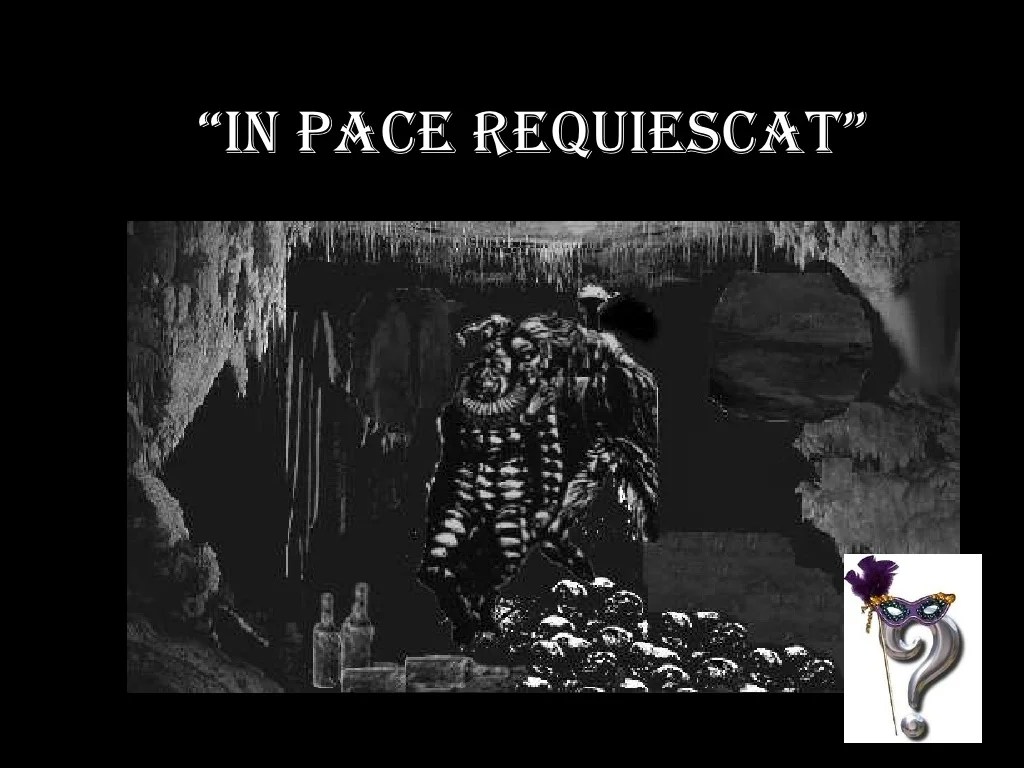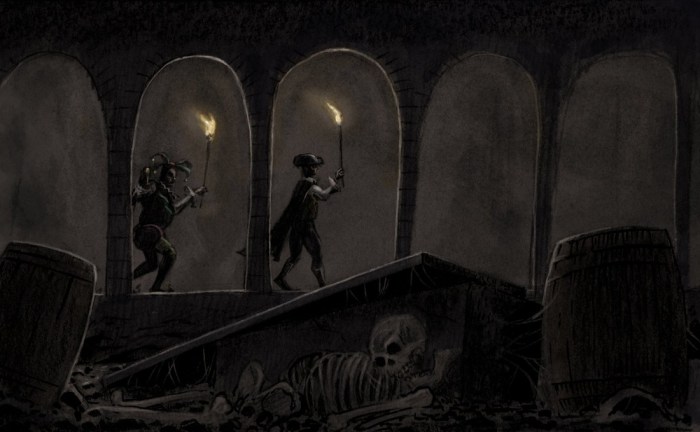Conflict of the story the cask of amontillado – The conflict in “The Cask of Amontillado” is a complex and multifaceted one, driven by a deep-seated animosity between the narrator, Montresor, and his victim, Fortunato. This essay will delve into the nature of their conflict, exploring its psychological, symbolic, and thematic dimensions.
Montresor’s hatred for Fortunato stems from a perceived insult, the precise nature of which remains ambiguous. However, it is clear that Montresor’s thirst for revenge consumes him, leading him to plot an elaborate and gruesome plan to murder his enemy.
The Montresor-Fortunato Conflict
The conflict between Montresor and Fortunato in Edgar Allan Poe’s “The Cask of Amontillado” is driven by Montresor’s desire for revenge. Montresor believes that Fortunato has wronged him in some unspecified way, and he vows to exact retribution.
Fortunato’s Insults, Conflict of the story the cask of amontillado
Fortunato’s insults and condescending attitude towards Montresor further fuel the conflict. Fortunato’s drunken state and his boasting about his expertise in wine-tasting annoy Montresor, who feels that Fortunato is mocking his intelligence.
Montresor’s Motivation
Montresor’s motivation for revenge is not entirely clear, but it may stem from a combination of factors, including jealousy, envy, and a sense of superiority. Montresor may also feel that Fortunato’s behavior has threatened his honor or reputation.
The Setting’s Contribution to the Conflict

The Catacombs
The setting of the story, the catacombs beneath the streets of an unnamed city, contributes significantly to the conflict. The catacombs are a dark, damp, and oppressive environment that creates a sense of claustrophobia and unease.
The Carnival Atmosphere
The contrast between the festive carnival atmosphere above ground and the grim setting of the catacombs highlights the conflict between Montresor’s desire for revenge and the carefree nature of the celebration. The juxtaposition of these two worlds creates a sense of irony and foreshadows the tragic outcome of the conflict.
The Use of Irony and Symbolism in the Conflict

Irony
Poe uses irony throughout the story to enhance the conflict. For example, Fortunato, who is known for his love of wine, is ultimately tricked into drinking a glass of Amontillado that contains Montresor’s bones.
Symbolism
The cask of Amontillado itself is a powerful symbol of the conflict. The cask represents both the treasure that Montresor seeks to avenge and the trap that he sets for Fortunato. The fact that the cask is hidden in the catacombs suggests that Montresor’s desire for revenge is a dark and dangerous secret.
The Psychological Aspects of the Conflict

Montresor’s Mental State
Montresor is a complex and psychologically disturbed character. He is consumed by a desire for revenge that borders on obsession. Montresor’s meticulous planning and the detailed way in which he describes his actions suggest that he is a cold and calculating individual.
Fortunato’s Mental State
Fortunato is a more carefree and trusting character than Montresor. He is easily persuaded by Montresor’s invitation to taste the Amontillado and is unaware of the danger that he is in. Fortunato’s drunkenness and his vanity contribute to his downfall.
Foreshadowing
Poe uses foreshadowing throughout the story to build suspense and create a sense of unease. For example, the mention of the “hundred years of wrong” that Montresor claims to have suffered suggests that the conflict between the two men is deep-seated and long-standing.
The Resolution of the Conflict: Conflict Of The Story The Cask Of Amontillado
Montresor’s Triumph
The conflict between Montresor and Fortunato is resolved when Montresor successfully imprisons Fortunato in the catacombs and leaves him to die. Montresor’s triumph is a testament to his cunning and determination, but it also raises questions about the morality of his actions.
The Moral Implications
The ending of the story leaves the reader with a sense of unease and ambiguity. While Montresor may have avenged his perceived wrongs, his actions are ultimately cruel and inhumane. The story raises questions about the limits of revenge and the importance of forgiveness.
Popular Questions
What is the primary motivation behind Montresor’s conflict with Fortunato?
Montresor’s primary motivation is a deep-seated hatred for Fortunato, stemming from a perceived insult.
How does the setting of the story contribute to the conflict?
The dark and claustrophobic catacombs create a sense of tension and unease, amplifying the psychological battle between Montresor and Fortunato.
What is the significance of the cask of Amontillado as a symbol?
The cask of Amontillado represents Fortunato’s impending doom and symbolizes the destructive power of Montresor’s hatred.